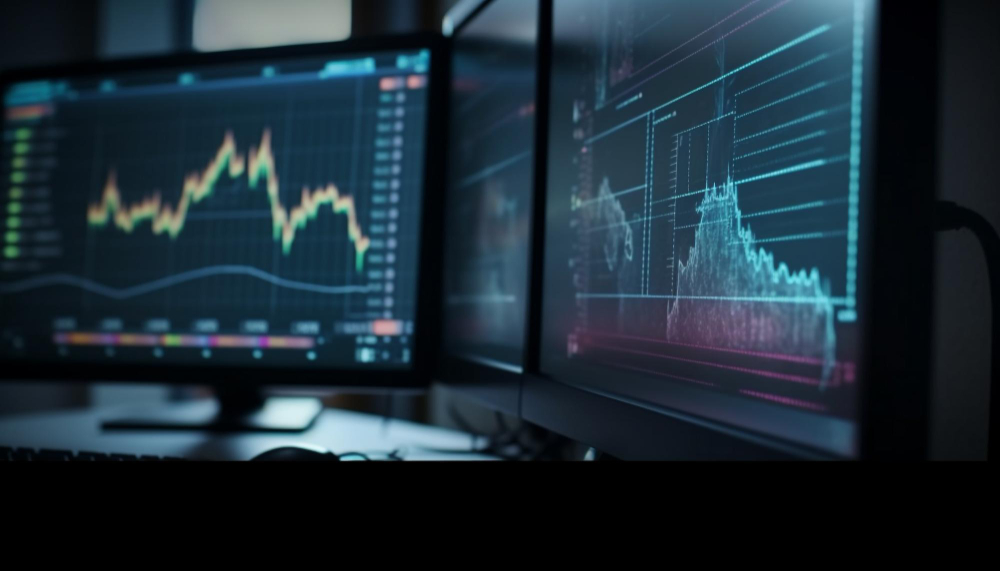
Definition
Trading refers to the buying and selling of financial instruments, such as stocks, bonds, currencies, commodities, or derivatives, with the aim of making a profit from short-term price fluctuations. It is a fundamental activity in financial markets and involves the exchange of assets between buyers and sellers.
Trading can take place on various platforms, including stock exchanges, commodity exchanges, foreign exchange markets, and over-the-counter (OTC) markets. Traders may participate as individuals, institutional investors, or through brokerage firms.
The primary objective of trade is to capitalize on price movements by purchasing an asset at a lower price and selling it at a higher price, or vice versa in the case of short-selling. Traders employ different strategies, such as fundamental analysis, technical analysis, or algorithmic trading, to make informed decisions about when to enter or exit trades.
Trade can involve different timeframes, ranging from intraday trading (buying and selling within a single trading day) to swing trading (holding positions for days or weeks) or long-term investing (holding positions for months or years).
Table of Contents
History of Trading
The history of trading can be traced back to ancient civilizations where barter systems were used for exchanging goods. Over time, as economies developed, evolved into more structured forms. The first known stock exchange was established in 1602 in Amsterdam, followed by the creation of other notable exchanges, such as the London Stock Exchange in 1801. The 20th century witnessed significant advancements in trade with the advent of electronic trading systems, including the establishment of Nasdaq in 1971, the first electronic stock exchange. Today, it has become highly automated and accessible to a wide range of participants, thanks to technological advancements and globalization of financial markets.
Concept of Trading in India
The concept of trading revolves around the buying and selling of financial instruments with the objective of making a profit from price fluctuations. It is a fundamental activity in financial markets and encompasses various assets like stocks, bonds, currencies, commodities, and derivatives.
The core idea behind trade is to take advantage of price discrepancies in the market. Traders aim to buy an asset at a lower price and sell it at a higher price, or sell it at a higher price first and then buy it back at a lower price (short-selling). The profit is generated from the difference between the buying and selling prices.
Traders employ different strategies and approaches to make informed trade decisions. These can include fundamental analysis, which involves assessing the intrinsic value of an asset based on factors like financial statements, industry trends, and macroeconomic indicators. Technical analysis, on the other hand, involves studying historical price patterns and market data to predict future price movements.
The time horizon of trade can vary. Some traders focus on short-term trades, executing transactions within a single trading day (intraday trading) or holding positions for a few days or weeks (swing trading). Others engage in long-term investing, where positions are held for months or years.
Risk management is a crucial aspect of trade. Traders employ various risk mitigation techniques, such as setting stop-loss orders to limit potential losses, using position sizing strategies to control the amount of capital at risk, and diversifying their portfolios to spread risk across different assets.
Trading can take place on different platforms, including stock exchanges, commodity exchanges, foreign exchange markets, or over-the-counter (OTC) markets. The advent of technology has also facilitated electronic trade, enabling traders to execute trades through online brokerage accounts.
Types of Trading in India
In the Indian stock market, there are several types of traders who participate in trading activities. These types can be categorized based on their trade style, approach, and holding period. Here are some common types of traders in the Indian stock market:
Intraday Traders: Intraday traders, also known as day traders, engage in buying and selling securities within the same trade day. Their objective is to capitalize on short-term price movements and take advantage of intraday volatility. Intraday traders typically close their positions before the end of the trading day and do not carry any overnight positions.
Swing Traders: Swing traders hold positions for a few days to weeks, aiming to profit from medium-term price swings. They analyze technical indicators, chart patterns, and market trends to identify potential opportunities. Swing traders may use a combination of technical and fundamental analysis to make trade decisions.
Position Traders: Position traders hold positions for an extended period, ranging from weeks to months or even years. They focus on long-term trends and fundamentals, conducting in-depth research and analysis to identify undervalued or fundamentally strong securities. Position traders often have a higher tolerance for market fluctuations and aim for significant price appreciation over time.
Scalpers: Scalpers are traders who aim to make small, quick profits from frequent trades. They execute multiple trades in a short period, focusing on capturing small price differentials. Scalpers rely on high-speed trading techniques and closely monitor market liquidity and order flow.
Algorithmic Traders: Algorithmic traders use computer algorithms and automated trading systems to execute trades. They develop or use pre-programmed algorithms to analyze market data, identify trading opportunities, and automatically execute orders. Algorithmic trading is prevalent among institutional investors and high-frequency trading firms.
Retail Investors: Retail investors are individual investors who trade in the stock market with their own capital. They often have a long-term investment approach and may participate in initial public offerings (IPOs), invest in mutual funds, or hold shares for extended periods.
Commodity Traders: A commodity trader is an individual or entity that buys and sells various commodities, such as gold, silver, crude oil, agricultural products, etc., on commodity exchanges. Their objective is to profit from price fluctuations in these physical goods.
Currency Trader: A currency trader is an individual or entity that buys and sells different currencies in the foreign exchange market. Their aim is to profit from fluctuations in exchange rates between different currencies, including major currency pairs like USD/EUR or GBP/JPY.
Trading Pros
Trading offers several advantages for individuals and institutional investors:
Potential Profits: Here it provides opportunities for generating profits by capitalizing on price movements in financial markets.
Flexibility: Traders can choose their preferred trade style, time horizon, and market instruments to trade, providing flexibility to align with their goals and preferences.
Diversification: Here it allows for diversification of investment portfolios across different assets, markets, and strategies, reducing the concentration of risk.
Liquidity: Financial markets, especially major exchanges, offer high liquidity, ensuring that traders can easily buy or sell positions at competitive prices.
Access to Global Markets: Here it enables participation in global markets, giving access to a wide range of investment opportunities across various countries and regions.
Financial Independence: Successful traders have the potential to generate consistent profits, providing financial independence and the ability to manage their own investments.
Skill Development: Here it requires continuous learning and skill development, offering opportunities for personal growth and acquiring valuable knowledge about financial markets.
Trading Con’s
While trading offers several advantages, it is important to consider the potential downsides:
Financial Risk: It involves the risk of financial loss. Market fluctuations, unexpected events, and poor investment decisions can lead to substantial losses.
Emotional Stress: It can be emotionally challenging, as it requires making quick decisions, managing losses, and dealing with the psychological impact of market volatility.
Time Commitment: Successful trade requires significant time commitment for research, analysis, and monitoring of markets, which may not be feasible for everyone.
Transaction Costs: It involves transaction costs, such as brokerage fees, commissions, and spreads, which can eat into profits, particularly for frequent traders.
Information Overload: The abundance of financial information and news can be overwhelming, making it challenging to filter out noise and make informed trade decisions.
Regulatory and Legal Risks: It is subject to regulations, and non-compliance can lead to legal consequences. Traders need to stay updated with market rules and adhere to regulatory requirements.
Market Volatility: Financial markets can experience periods of high volatility, which can lead to rapid price fluctuations, increased risk, and potential losses.
Future of Trading in Stock Market
The future of trade in the stock market is likely to be shaped by ongoing technological advancements and evolving market dynamics. Here are some potential trends and developments that could influence the future of trade:
Artificial Intelligence and Machine Learning: The use of artificial intelligence (AI) and machine learning (ML) algorithms is expected to increase in trade. These technologies can analyze vast amounts of data, identify patterns, and generate insights to inform trade decisions.
Algorithmic Trading and High-Frequency Trading: Algorithmic and high-frequency trading (HFT) are likely to continue gaining prominence. The use of complex algorithms and high-speed trade systems allows for quick execution of trades and taking advantage of short-term market inefficiencies.
Automation and Robo-Advisors: Automation in trade is expected to expand, with the rise of robo-advisors. These digital platforms provide automated investment advice and portfolio management services, catering to retail investors and small traders.
Blockchain Technology: Blockchain technology has the potential to revolutionize trade by enabling more efficient and transparent transactions. It could enhance trade settlement processes, reduce counterparty risk, and enable peer-to-peer trade without intermediaries.
ESG and Sustainable Investing: Environmental, Social, and Governance (ESG) factors are becoming increasingly important in investment decisions. The future of trade may see a greater emphasis on ESG considerations, leading to the growth of sustainable investing strategies.
Regulatory Changes: Regulatory frameworks will continue to evolve to adapt to changing market dynamics. Authorities may implement measures to enhance market integrity, investor protection, and address emerging risks, such as cybersecurity threats and market manipulation.
Global Integration and Cross-Border Trading: Here it is expected to become more globally integrated, with increased cross-border trade opportunities. Advancements in technology and regulatory harmonization efforts may facilitate smoother international trade transactions.




Leave a Reply